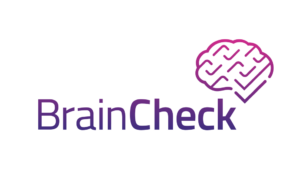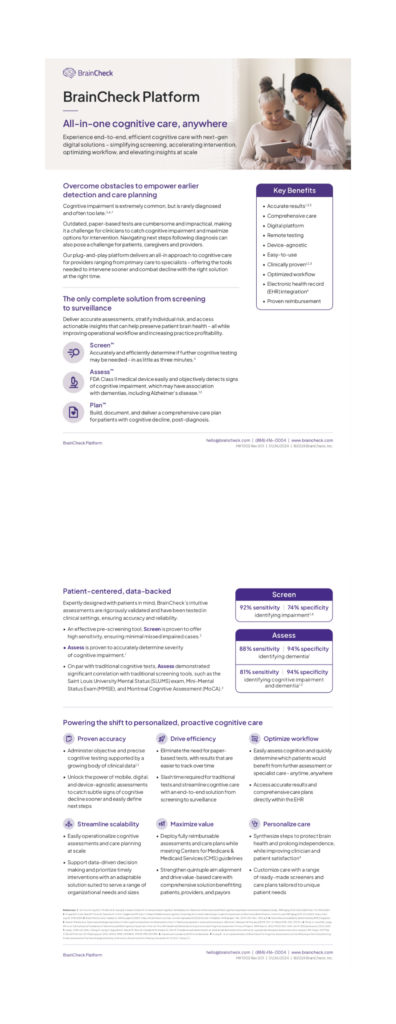Previous Episodes: Part 1, Part 2, Part 3, Part 4
Video transcription
There is not yet a cure for dementia. There are currently some drugs that may provide a small benefit and slow down the progression of mild to moderate disease — you may have heard of donepezil and memantine — but these drugs are not cures. Other drugs such as antidepressants are used to treat some of the behavioral symptoms in Alzheimer’s, but treating symptoms is also not a cure.1
What about brain games and other types of brain care?
Clearly, it is critical to be physically and mentally active as you age, but will solving crosswords and sudoku puzzles or playing brain games do anything to combat dementia?
Brain plasticity
Let’s zoom out for a moment to talk about the idea of neural plasticity and cognitive reserve. Perhaps the most astonishing thing about the brain is its ability to grow, change, and adapt — we call this plasticity. Every time you experience a new event, solve a problem or think a thought, physical changes take place in your brain, enhancing the neural connections between your brain cells and structures.2
Cognitive reserve
Cognitive reserve is what we call the sum total of all of the brain stimulation, practice, and new experiences that your brain has had over your lifetime.3 If you are the type of person who uses your brain a lot and very frequently, then your cognitive reserve is going to be greater than someone who doesn’t stay very cognitively active
So, the theory goes, having a larger cognitive reserve may decrease the effects of dementia, because even if some neural networks degenerate, others are available to take over.4
Can brain games build cognitive reserve and help with dementia? “Brain games,” while certainly fun, can clearly make you good at the games that you play over and over. The jury’s still out, though, about whether this offers any advantage with regard to dementia.
Early detection & clinical trials
Researchers are actively testing dementia drug candidates in clinical trials. If you identify dementia early, you have the best chance of being able to participate in clinical trials and reap the benefits of possible new therapies. This is also the best way to contribute to science and benefit the next generation. One of the difficulties with Alzheimer’s clinical trials is that participants are often in advanced stages of disease, possibly past the point of no return. Joining a trial early also maximizes the chances of successful drug discovery.
Remember, the term dementia refers to a decline in cognitive function beyond what is expected in normal aging. It’s disabling, and it strips away essential abilities. So keep your brain healthy and active. Stay involved in learning, and maintain an active social life. This builds a cognitive reserve, so that even as some parts of your neural tissue degenerates, your brain can still find roadways to get from point A to point B. Keeping your networks healthy by constantly using and exercising them is the best thing you can do for your brain health.
References
- O’brien, John T. “Clinical practice with anti-dementia drugs: a revised (second) consensus statement from the British Association for PsychopharmacologyJournal of Psychopharmacology – John T O’Brien, Alistair Burns, 2011.” Journals.sagepub.com. n.d. Web. 3 Oct. 2017, from http://journals.sagepub.com/doi/abs/10.1177/0269881110387547
- Danielbarulli. “Efficiency, capacity, compensation, maintenance, plasticity: emerging concepts in cognitive reserve – ScienceDirect.” Sciencedirect.com. 6 Sept. 2013. Web. 3 Oct. 2017, from http://www.sciencedirect.com/science/article/pii/S1364661313002039
- Perminder S. Sachdev. “Brain and Cognitive Reserve.” The American Journal of Geriatric Psychiatry. 1 Mar. 2009. Web. 3 Oct. 2017, from http://www.ajgponline.org/article/S1064-7481(12)61597-8/abstract
- Proflaurafratiglionia. “An active and socially integrated lifestyle in late life might protect against dementia – ScienceDirect.” Sciencedirect.com. 19 May 2004. Web. 3 Oct. 2017, from http://www.sciencedirect.com/science/article/pii/S1474442204007677
- Fratiglioni, Laura. “Brain Reserve Hypothesis in Dementia – IOS Press.” Content.iospress.com. 1 Jan. 2007. Web. 3 Oct. 2017, from http://content.iospress.com/articles/journal-of-alzheimers-disease/jad00737



